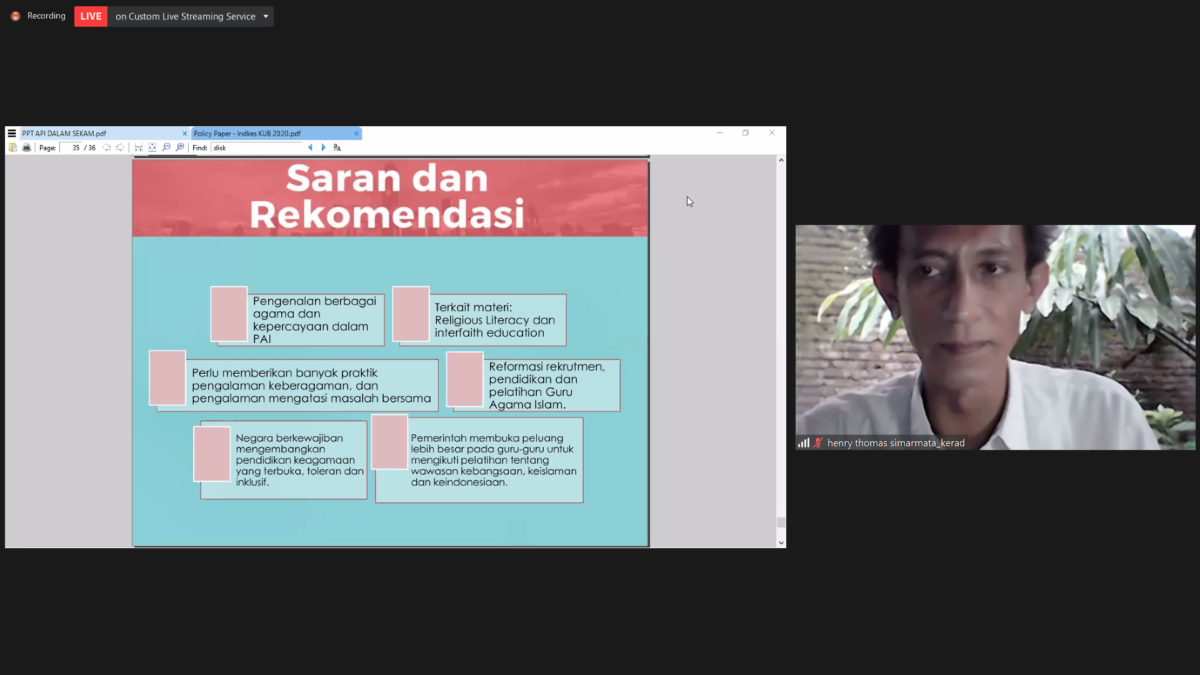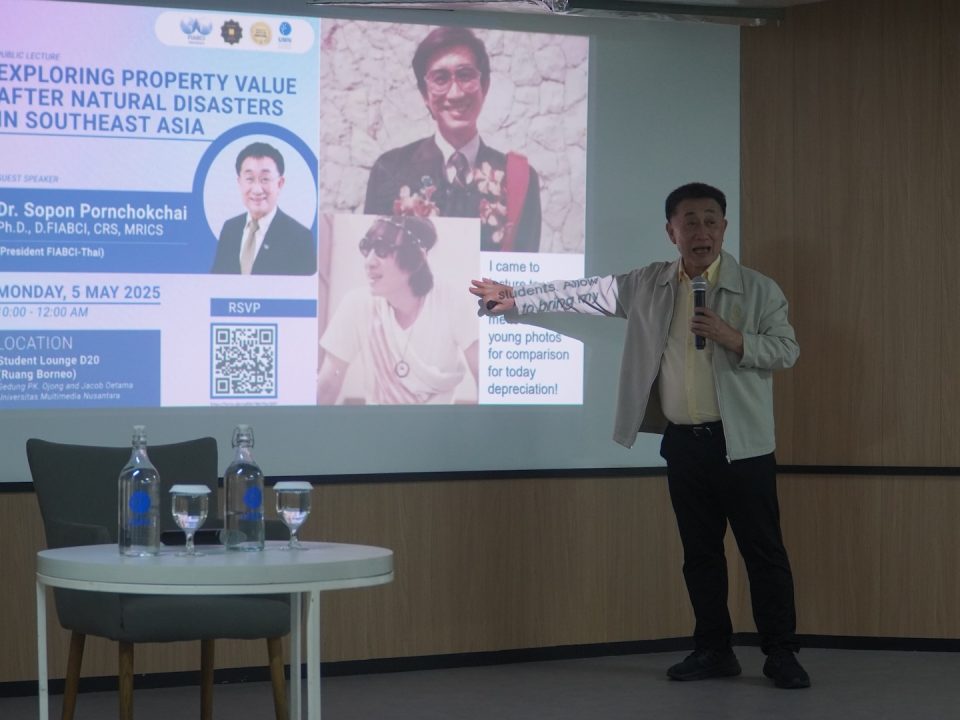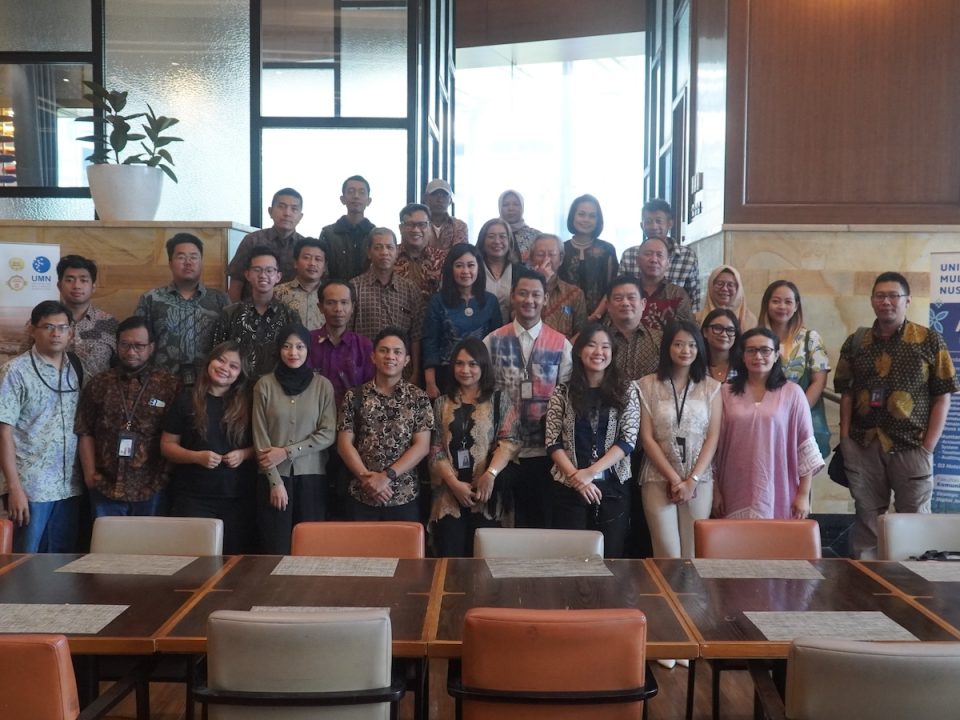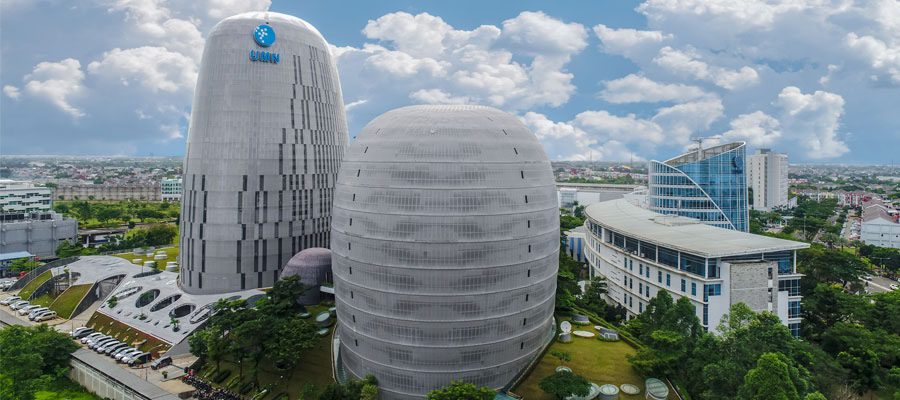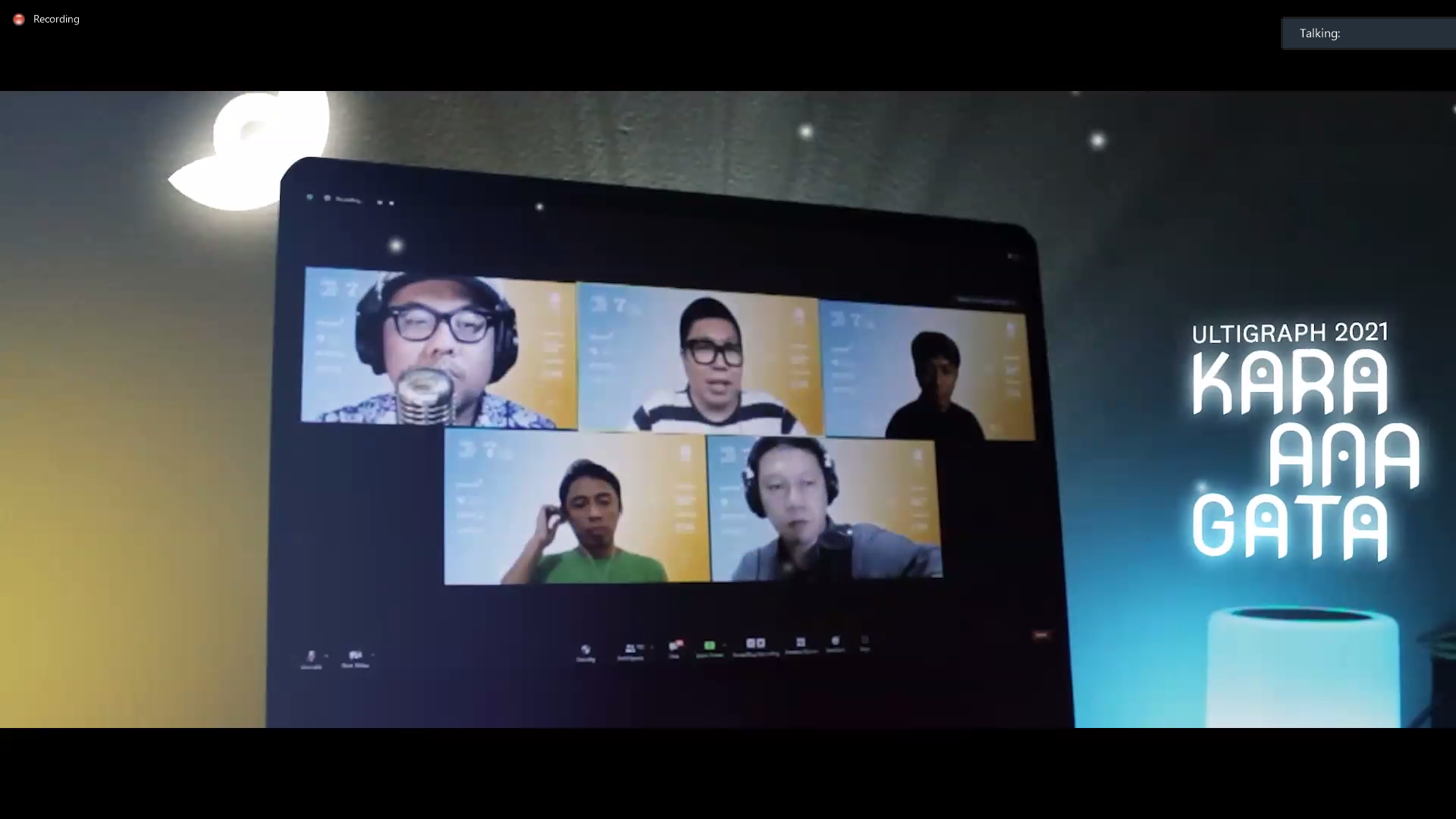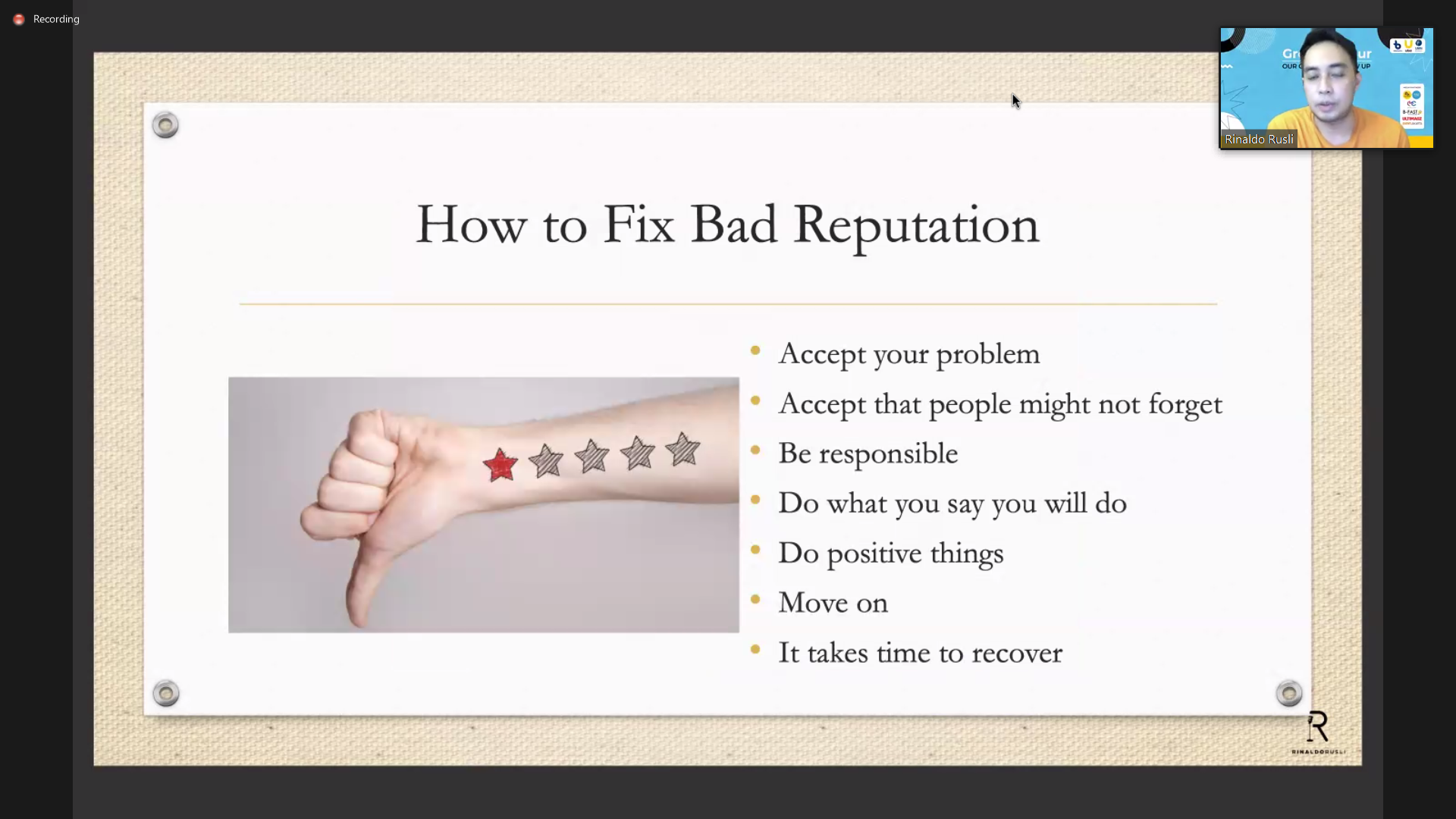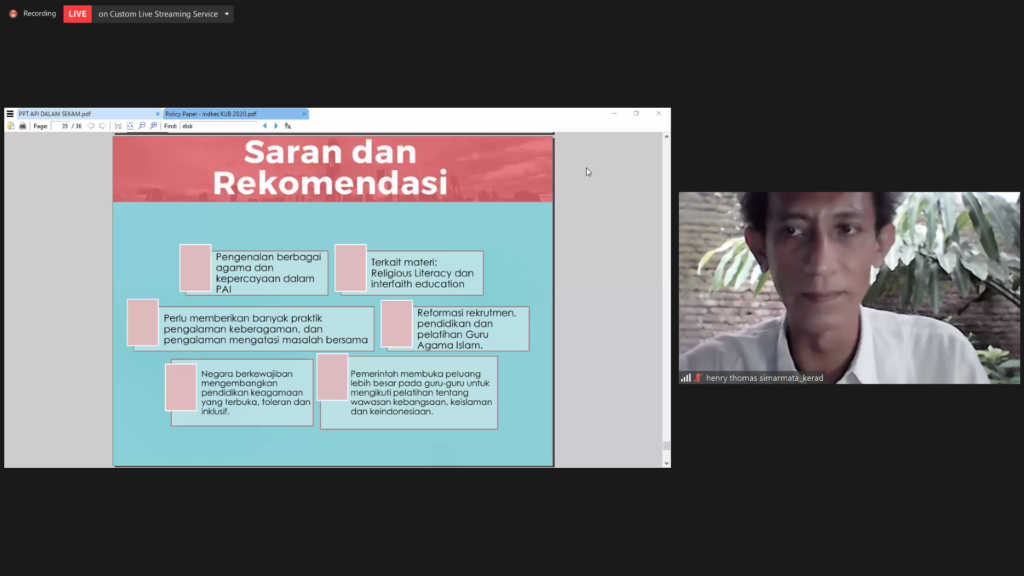
Henry Thomas Simarmata as a speaker in the seminar “Youth and the Threat of Religious Radicalism” (doc. UMN)
TANGERANG – UMN Humanities Studies and UMN Student Affairs collaborated to hold the “Nation and Character Building Program: Gen Z Indonesia Keren” to shape the national character of young people at Multimedia Nusantara University. “Youth and the Threat of Religious Radicalism” became one of the issues raised in this program on Monday (01/11/2021). Through this program, young people at UMN are expected to be able to respond wisely to the problems of religious radicalism in Indonesia.
This event presented Henry Thomas Simarmata from Driyarkara’s Research and Analysis Work to discuss the topic of the threat of religious radicalism. At first, Henry said that this radicalism had an etymologically neutral meaning. However, the nature of the meaning of this radicalism turned negative because of the negative experiences displayed in social life. The causes are varied. Henry said the “separate experience” could be one of the driving factors.
“We have separate experiences. In social life, we become less sociable with those who are different. In education we get a less diverse intake. So, only one argument,” said Henry.
Also read Start Holding Hybrid Lectures, UMN Becomes a Safe and Comfortable Campus
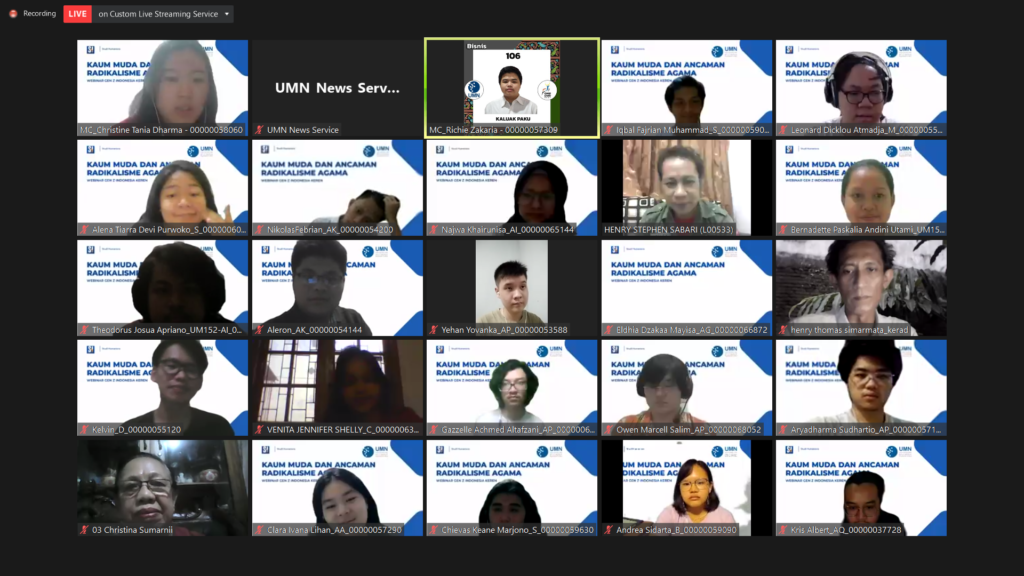
Participants of the seminar “Youth and the Threat of Religious Radicalism” (doc. UMN)
Following this, Henry explained other things that could cause young people to be easily exposed to religious radicalism. Based on research from the Center for Islamic and Community Studies at UIN Jakarta, Henry said the cause could depend on the number of readings and media accessed. He said the bigger the media that was accessed, the less radicalism he had.
“The more we meet different people, the less racist we are. This racial attitude also arises because they rarely get along, right,” said Henry.
Therefore, Henry advised young people to read or access information from various sources. This is also so that we are not trapped in “its own perspective bubble”, but can encourage the creation of an understanding of many perspectives on a matter. In this way, it is hoped that this can drive an attitude of tolerance towards diversity. According to him, this is also very easy to do because access to information is now very easy. However, young people also have to be critical and wise about the sources of information they consume.
By Melinda Chang | UMN News Service
Kuliah di Jakarta untuk jurusan program studi Informatika| Sistem Informasi | Teknik Komputer | Teknik Elektro | Teknik Fisika | Akuntansi | Manajemen| Komunikasi Strategis | Jurnalistik | Desain Komunikasi Visual | Film dan Animasi | Arsitektur | D3 Perhotelan | International Program, di Universitas Multimedia Nusantara. www.umn.ac.id


